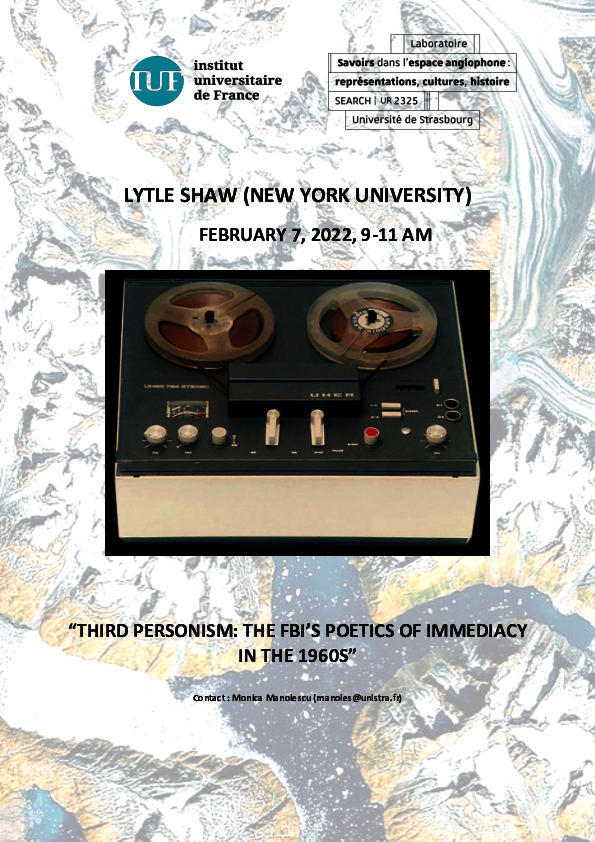Drawn from Narrowcast: Poetry and Audio Research (Stanford, 2018), a book that considers the site-specific aspects of tape recording, this talk positions the recordings Allen Ginsberg undertook in his VW van on a cross-country trip in 1966 in relation to the surveillance recordings performed by the CIA and FBI on poets associated with the New Left including Ginsberg himself. Reframing this surveillance as a form of research, the talk demonstrates how, when the state’s Yale-trained literary critics “overheard” poets, they confronted problems similar to those encountered by poets using tape, especially the bleeding of voice into sonic environments that overwhelmed audibility. Recordings tended to register sites as much as they did humans, locations as much as voices. Designed to immerse Ginsberg in a set of local pro-Vietnam war radio broadcasts, to capture their toxic ambiances on his new reel-to-reel, his 1966 tape in fact relativized Ginsberg’s voice to the extent that the poet translated his project from the medium of tape to that of print. What does it tell us about the spatial and social life of tape recording in the 1960s, then, to compare Ginsberg and the state’s responses to tape’s relativization of voice?
Lytle Shaw is professor of English at New York University and a founding contributing editor for Cabinet magazine. His books include Frank O’Hara: The Poetics of Coterie (2006), The Moiré Effect (2012) Fieldworks: From Place to Site in Postwar Poetics (2013), and Narrowcast: Poetry and Audio Research (2018).
